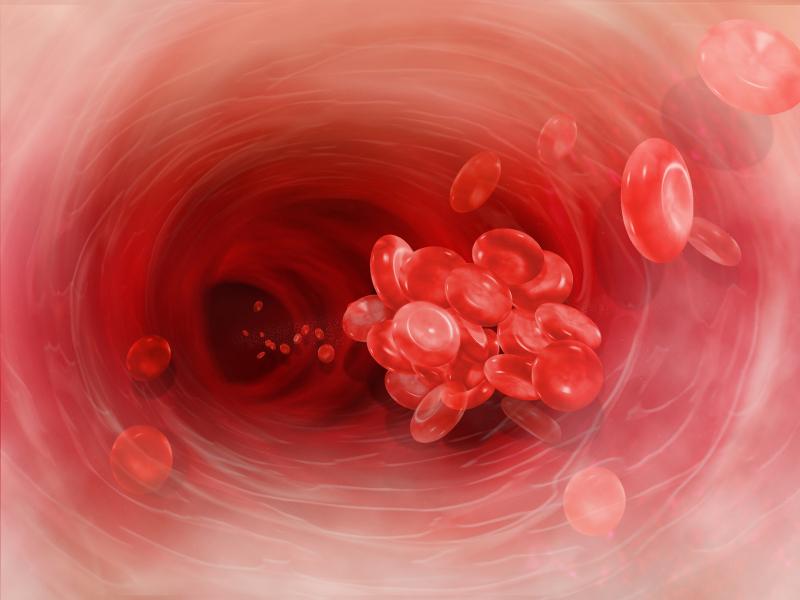
Any gastrointestinal or genitourinary bleeding carries a 20–30-fold higher hazard for new cancer diagnosis in the respective organ systems in patients with atherosclerosis receiving antithrombotic drug treatment, as shown in a recent study.
The study used data from the Cardiovascular Outcomes for People Using Anticoagulation Strategies (COMPASS) trial and included 27,395 patients (mean age, 68 years; 21 percent) new cancers diagnosed in relation to gastrointestinal or genitourinary bleeding among patients enrolled in the Cardiovascular Outcomes for People Using Anticoagulation Strategies (COMPASS) trial.
During a mean follow-up of 23 months, any (major or minor) bleeding occurred in 2,678 patients (9.8 percent), among whom 257 (9.9 percent) were subsequently diagnosed with cancer.
Gastrointestinal bleeding was associated with an increased risk of new gastrointestinal cancer diagnosis (7.4 percent vs 0.5 percent; hazard ratio [HR], 20.6, 95 percent CI, 15.2–27.8) and new nongastrointestinal cancer diagnosis (3.8 percent vs 3.1 percent; HR, 1.70, 1.20–2.40).
Additionally, genitourinary bleeding bore a higher risk of new genitourinary cancer diagnosis (15.8 percent vs 0.8 percent; HR, 32.5, 24.7–42.9), while urinary bleeding showed an association with higher risk of new urinary cancer diagnosis (14.2 percent vs 0.2 percent; HR, 98.5, 68.0–142.7).
Finally, nongastrointestinal, nongenitourinary bleeding was associated with a threefold higher hazard of nongastrointestinal, nongenitourinary cancers (4.4 percent vs 1.9 percent; HR, 3.02, 2.32–3.91).
Researchers believe that the present data should prompt a careful search for undiagnosed cancer in patients receiving antithrombotic drugs who develop gastrointestinal and genitourinary bleeding, even when the bleeding is minor.